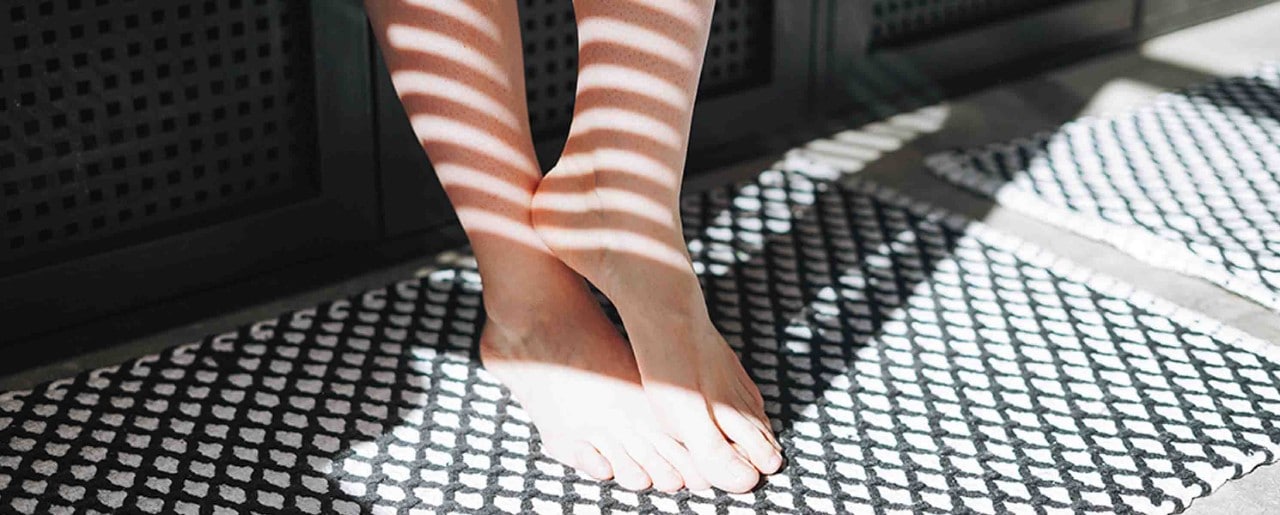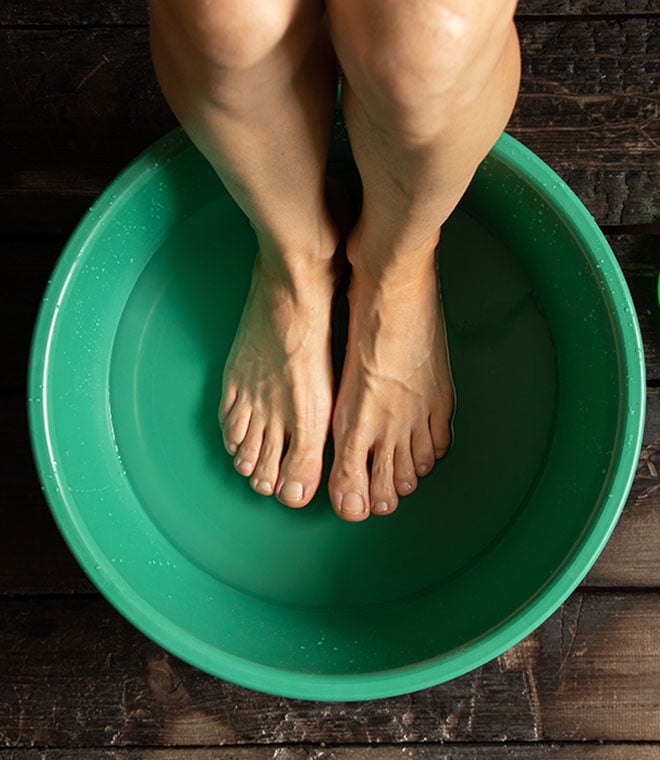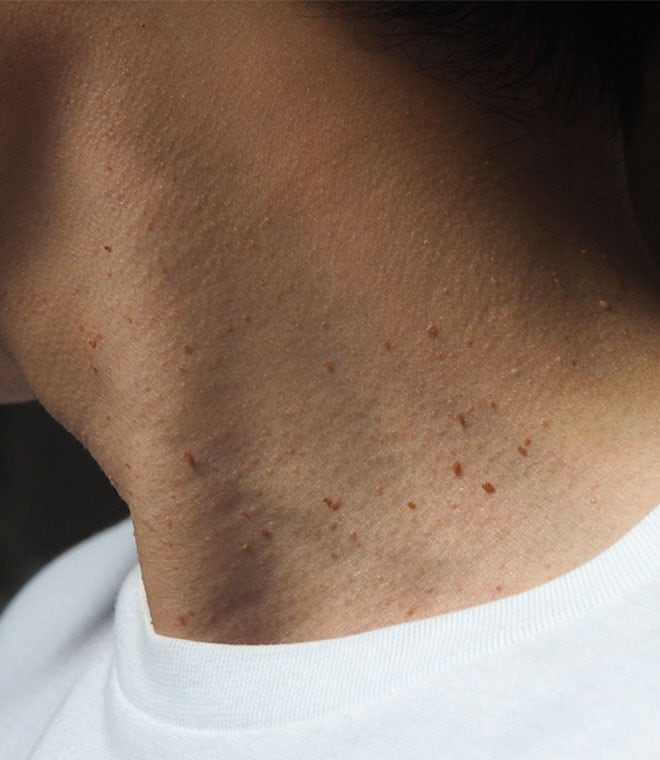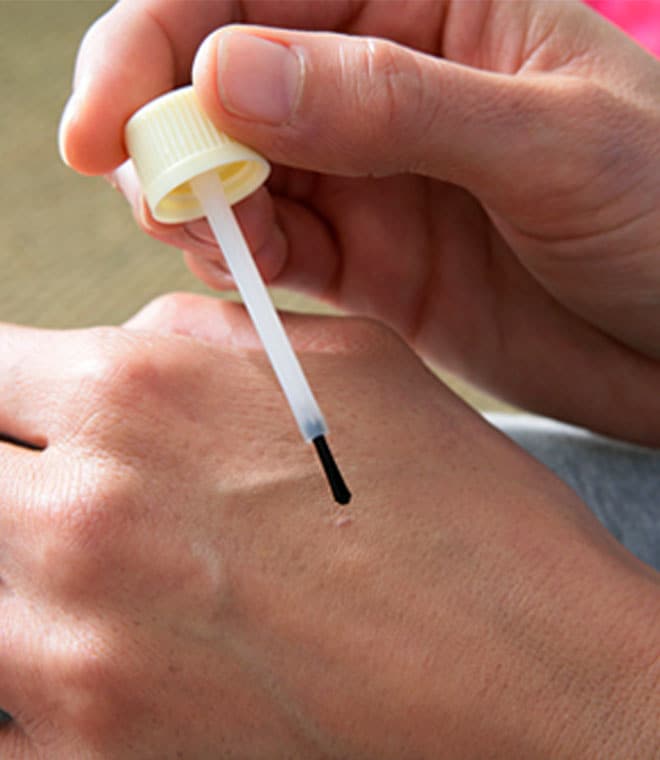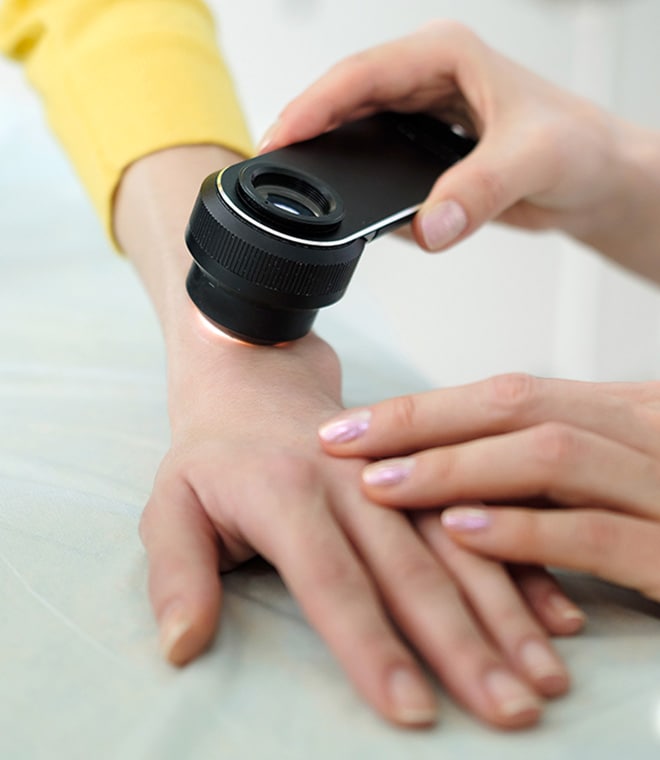Health
What causes plantar warts?
By Anna H. Chacon, MD, Fellow of the American Academy of Dermatology Apr 12, 2024 • 6 min
Plantar warts are bothersome skin growths that occur on the bottoms of the feet and pads of the toes. These warts can become very painful when they grow in places on the foot that support your weight. But what exactly causes plantar warts?
HPV
Plantar warts are caused by the human papillomavirus, or HPV. There are more than 100 types of HPV, but only some of them cause warts. HPV enters the top layer of skin through tiny cuts and causes excessive cell growth. The cells on the surface of
the skin grow thicker and harder and eventually form a raised
bump — a wart. Tiny black dots or “seeds” may also appear inside plantar warts. These are actually clogged blood vessels. Since plantar warts occur on the bottoms of the feet, they're subjected to a lot of pressure from walking and standing. Because of this, they tend to have a flattened appearance.
What are the risk factors for plantar warts?
Some people are more likely to develop plantar warts than others. While they're most common in children and teenagers, warts can occur at any age. You may be at a higher risk for warts, including plantar warts, if you:
- Are a child, teenager or you’re 65 or older
- Use communal showers, locker rooms or pools without shoes
- Had plantar warts before
- Have eczema or another chronic skin condition
- Have a weakened immune system
- Have close contact with someone who has warts
Are plantar warts dangerous?
No, plantar warts aren't dangerous. They are noncancerous skin growths. However, they can be painful. Some plantar warts can be so painful that they cause you to walk differently in order to avoid putting pressure on them. Plantar warts may contain tiny blood vessels, or capillaries, which appear as small, black dots on the surface of the wart. This is normal, and it's nothing to be concerned about.
Unlike common warts, which occur on the hands and fingers and grow outward, plantar warts are often pushed inward due to the pressure from walking and standing. This can make them particularly painful, and it may make them a little more difficult to treat than outward-growing warts.
Are plantar warts contagious?
Yes, plantar warts are contagious because they’re caused by the human papillomavirus and they shed the virus. Warts can spread from one part of the body to another, or they can spread to other people through contact with the wart or an object that's been in contact with the wart, like a sock, shoe, shower floor, pool deck or other surface where you often go barefoot. However, not everyone who encounters the virus will get a wart.
Human papillomaviruses multiply in the skin, but that doesn't necessarily mean you'll develop more warts. However, if you've had one wart, you may be more likely to have more later on. Even if you have a plantar wart removed, the virus may remain in the skin and could cause another wart in the future.
How long does it take for plantar warts to go away?
Most plantar warts go away on their own. However, it may take a few months or years. Sometimes it can take two years or longer for a wart to disappear. If you have plantar warts that aren't bothersome, you can leave them alone and allow them to go away on their own.
If your plantar warts are causing pain, plantar wart treatments are available over the counter and by a healthcare provider.
What to do if you have plantar warts
If you have one or more plantar warts that aren't bothering you, you can leave them alone and see if they disappear on their own. Meanwhile, you can help prevent them from spreading to other parts of your body by following these general practices:
- Leave your wart alone and don't pick at it or scratch it as this can spread the virus and potentially cause an infection
- Whenever you touch your plantar warts, wash your hands afterward
- Keep your feet dry, and put on clean socks every day
If your plantar warts are causing pain, see a healthcare provider for a plantar wart treatment. Once they're gone, keep a close eye on your feet, and if you notice more warts developing, consider having them removed.
Clinically reviewed and updated by Julie McDaniel, MSN, RN, CRNI, April 2024.
- https://www.merckmanuals.com/home/skin-disorders/viral-skin-infections/warts
- https://www.mayoclinic.org/diseases-conditions/plantar-warts/symptoms-causes/syc-20352691
- https://www.mayoclinic.org/diseases-conditions/plantar-warts/diagnosis-treatment/drc-20352697
- https://www.uptodate.com/contents/common-warts-plantar-warts-and-flat-warts-beyond-the-basics
- https://my.clevelandclinic.org/health/diseases/24899-plantar-warts
